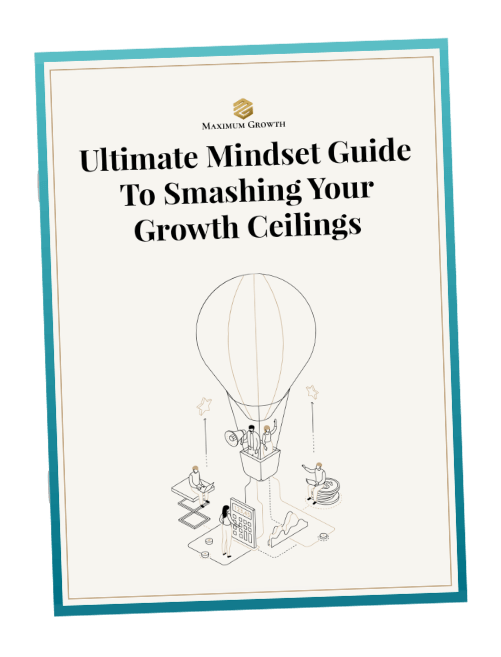Want to know what drives results and what I have found kills them before they even get a chance to materialise.
(And in all seriousness, this was me for years before I nailed down the distinction, on the outside it all looks the same, but how you think about it isn’t)
Here it is:
A focus on consistency and speed of repetition of input(actions) drives feedback, then results.
A focus on the outcomes, often kills them.
So I will give you this.
Focus on what you can control, your input, put a measure on this and make that the outcome.
Then use the future outcome or result you want to achieve to make adjustments to your actions. Use it as feedback.
I honestly can’t tell you how many times I have sat down with a new client and they have told me that something isn’t working, but when we take a look at their thinking we find that their expectations are far too high. They are inconsistent in their actions, and have almost never given it enough time to prove itself before they are looking for something else. All because they are focused on, and overly attached to the outcome.
And because they are attached to the outcome this leads them to erratic, chopping and changing of lead magnets, ideal clients, content, their expertise, the way they do sales, the way the connect with clients, …their delivery… Basically everything inside their business that they feel will get them to their desired outcome.
Then, depending on how extreme the attachment, it dictates the expectation, realistic or unrealistic, of the time frame a result will occur in, and drives how quickly they will move from one thing to the next.
All while living in a sense of angst from the moment they act, until they end up in disappointment due to results not matching their expectation.
I have had clients who have done this for years. Paid for business coaching, to find the “right” path for them but never got to their goal. This is no reflection of the business strategies and tactics or the coaches as seeing this in their clients is not their speciality. This is not what they do. They sell strategy and tactics. But because I believe that your perceptions drive everything you think, how you decide and act I want to look at this long before we even consider looking at if a strategy or tactics alignment to you.
Because only when we understand whats driving your decisions and actions, can we figure out if a strategy or tactic is aligned for you or if it needs to change. As every strategy will look unaligned for you, if being inconsistent in your actions and inputs, and chopping and changing the way you do things based on how you feel and no results.
When we look and discover that the driver of their inconsistency is due to being highly infatuated (all benefit + gain, no drawback + Loss)to an outcome we can start to unpack this, calm down the disappointment and the angst that triggers the emotions that drive the decisions to stop, start and change what they are doing. We find that the expectations shift to focus on performing the present inputs rather than focusing on achieving the future fantasied outcomes.
This grounds them into the ‘now’ and shifts them to more consist outcomes.
Where this creates confusion for people is because goal setting and aiming for outcomes is what most people have been taught to do, so they get confused over this idea that you’re “massive desire” to and attachment to achieving this outcome or goal is actually creating this pattern of inconsistency. And that you’re attachment to it is actually killing your chance of getting to it.
I am not demonising goal setting, we need to have an aim to move towards. But I believe the primary purpose of it is for feedback to how we are spending our time, energy and our actions so we can adapt if we are off track. Just like your would if you were on a road-trip from Melbourne to Sydney. It just sets the path and allows you to stay on course.
Just as the speed in a car shortens the timeframe you get to different points on your trip and therefor get usable feedback that you are on track, or not, the same happens with our actions and inputs. Doing something once is like putting the key in the ignitions and starting the car. It would seem insane to decide that you are off track and that driving isn’t working to get to your destination. But this is how most people treat their actions, their inputs.
They just start and barely get on the road, and because they haven’t got the outcome or results quick enough the chop and change.
They never leave home base, or if they do they get out of the vehicle and look for different vehicle to get there.
Now our way of clearing this is using a specific set of questions, once we get clarity on the dynamic, that shifts the the attachment to it and grounds them back into daily actions.
(this reminds me of one client who was switching businesses, share trading and trying to get promotions all because she was attached to “creating wealth”. When she shifted her attachment, her business fell into place, she automatically prioritised one path and grew her business to 20k months in 8 weeks)
Often, what this also does is gives them certainty on the way that is most aligned for them to achieve the outcome, as the attachment, which has been blinding them is resolved. It spontaneously comes to them. This clarity. This is why we don’t focus on the how as it often reveals itself, when the person has the education and know how, once the dynamics associated to the outcome are cleared.
If they are still uncertain, this is when we can move into our Identity Based Business processes to align them, which we also do.
So to reiterate.
Your attachment to your outcome, and the degree of that attachment will be a driver for inconsistent action and chopping and changing how you do things.
Resolve the attachment to the outcome, to refocus on your inputs(actions) and not be swayed by anxiety and disappointment.
This will create consistency so you can get feedback from your actions.
A focus on consistency and speed of repetition of inputs drives feedback, then results.
A focus on the outcomes, often kills them.
Focus on what you can control, your inputs, put a measure on this and make that the outcome.
Use the result you wish for it to generate as nothing more than a feedback, to make adjustments ignore your emotions.
If you would like to breakthrough your attachment to an outcome and find consistency.
Until next week,
Keep Smashing Growth Ceilings.
Justin “Attachment Breaker” Wiseman


